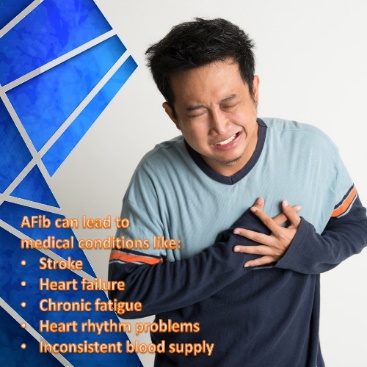Atrial Fibrillation (AFib) – the Silent but Deadly Epidemic
By Dr Reginald Liew

AFib is the most common heart rhythm problem. Most people haven't heard of the condition until their diagnosis. AFib causes the top chambers of the heart (called the atria) to beat irregularly. This can lead to symptoms such as palpitations, fatigue, breathlessness and light-headedness. Some people do not have any symptoms at all which is what makes the condition so dangerous. If untreated, AFib can increase the risk of stroke and heart failure.
AFib is a higher risk for older people, other heart diseases such as heart failure, high blood pressure and diabetes. Important lifestyle factors can also increase the risk of developing AFib. Increasing excessive alcohol intake, sleep-apnoea and obesity increases the risk. AFib is the silent epidemic with the rate of AFib increasing in line with the rise in these other related conditions worldwide. It is important that people with symptoms or cardiac/ lifestyle risk factors for AFib have a medical check-up. The diagnosis and correct management of AFib can be life-saving.
Treatment of AFib includes blood thinners in those at higher risk of developing blood clots and strokes. Others take medication to control the arrhythmia. A catheter ablation can treat the condition for those not keen on taking long-term medication or who develop side effects. Expert help and guidance can help manage this complex heart rhythm problem.

